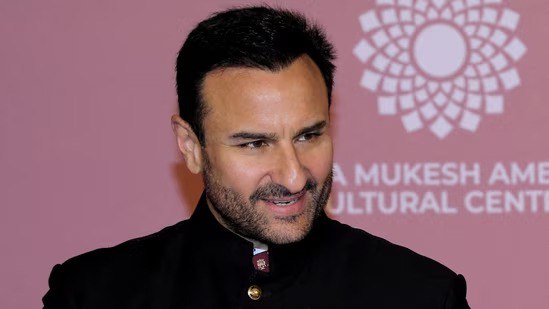Saif Ali Khan attack case: Senior police officers on Friday said that the Bandra police did not take the attack on actor Saif Ali Khan by an intruder seriously and did not promptly alert other units, such as the crime branch and the Government Railway Police (GRP), to block his possible escape routes.
A senior officer said that prompt action could have resulted in the apprehension of the assailant within hours of the attack, which took place around 2 am on Thursday.
“It seems like a complete failure of the Bandra police, who did not take the incident seriously and also did not alert the other police stations nearby and the crime branch to nab the culprit as soon as they came to know about the incident,” said the senior officer.
According to sources, a team from the Bandra police station reached Lilavati Hospital, where the actor is being treated, around 4 am on Thursday to get details of the incident, while another police team visited the Satguru Sharan building in Bandra West, where the incident took place.
“The crime branch was informed about the incident around 6 am, three and a half hours after the incident,” said the senior officer. “It was night time, and there was no crowd on the road. Had Bandra police alerted all other police stations, officials on patrolling vans, and beat marshals, they could have easily nabbed the suspect,” said the officer.
Details like the First Information Report (FIR) copy and CCTV footage of the assailant were also not shared with the crime branch officials, said the officer, adding that there should be healthy competition between police stations and crime branch units for nabbing hardcore criminals like the assailant who stabbed Khan multiple times after breaking into his house.
Another senior officer said the Bandra police could have circulated the CCTV footage of the assailant to other units of the Mumbai police, the GRP, the Railway Protection Force and the crime branch, and placed nakabandi across the suburb, especially near Bandra railway station and other entry-exit points.
While this practice was followed earlier in all high-profile and sensitive cases, it has been observed that the police now act only after the accused flees from the city and it becomes a major issue for them, said a retired police officer, who did not wish to be named.
“Lapses and carelessness were clearly seen in the three high-profile cases—the firing at actor Salman Khan’s house, where the accused fled from the city and were arrested after three days; the murder of senior NCP leader Baba Siddique, in which main shooter went back to the crime scene and also visited Lilavati Hospital, where the former minister was taken for treatment, but still managed to flee the city; and the Saif Ali Khan attack case,” the retired officer added.
Retired IPS officer PK Jain said that earlier, the moment an outsider committed a crime in Mumbai, the police used to get a tip-off from local gangs. However, now, due to migration, transport availability and, most importantly, anonymity, outsiders commit crimes and disappear even before the police are notified. “More importantly, the focus of the police now is on new types of crime like cybercrime and VIP security, due to which they overlook petty and street crimes,” added Jain.
Retired assistant commissioner of police Sunil Deshmukh said that earlier, ground patrolling was designed in such a way that the maximum force used to be on the roads, especially during bank operational hours, due to which street crimes had gone down. “Now, there is hardly any police presence on the roads. As a result, street crimes like mobile snatching are common, where the accused can commit a crime and flee on two-wheelers,” Deshmukh added.





















